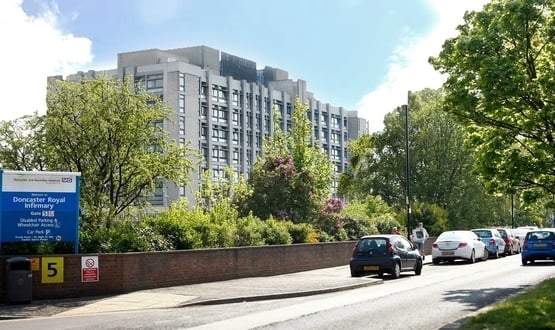Doncaster and Bassetlaw Teaching Hospitals NHS Foundation Trust is rolling out a new digital solution to improve cancer care in the area.
A new electronic referral system will help to enhance patient safety as well as improve the speed at which cancer patients will move through the care pathway. The solution will also mean that the time medical administration teams spend facilitating the referral of patients for treatment will be reduced too.
The digital referral system integrates two existing computer systems already in use within the trust. The first is Integrated Clinical Environment (ICE), an electronic referral system, and the second is cancer management system, Infoflex.
Previously, referrals at Doncaster and Bassetlaw would be made by phone or emails, and this disparity occasionally led to delays. The new referral system will mean patients who receive a cancer diagnosis will have their care options discussed by a team of multi-skilled specialists promptly and receive the appropriate treatment quicker than under the old system.
Dr Neelam Dugar, consultant radiologist and clinical lead for the ICE MDT [multi-disciplinary team] project, said: “The new ICE MDT referral process is improving patient care by way of saving valuable time to start treatments.
“Receiving a cancer diagnosis can be a worrisome time and the shorter the time between diagnosis and beginning treatment, the better for our patients both medically and for their mental wellbeing.”
Any referral from a clinician on ICE will be automatically and instantaneously received into Infoflex, which will generate a worklist for the trained cancer co-ordinators at Doncaster and Bassetlaw and prompt them to arrange discussions with the multi-disciplinary team (MDT). The need to manually enter relevant information is also reduced, as when a patient is added to an MDT list their information is automatically populated.
Jackie Simpkin, cancer services manager at Doncaster and Bassetlaw and who co-designed the project, added: “This new system is saving our clinicians valuable administration time on referring patients into a cancer MDT. This will bring about much needed improvements to our patient care and management of the cancer pathway, ultimately enhancing the care of local people.”
Speeding up cancer referrals will be welcome by many, particularly after the fallout from the Covid-19 pandemic. In July last year the All-Party Parliamentary Group for Radiotherapy called for advanced radiotherapy IT and technical solutions to help ease the backlog of cases.

